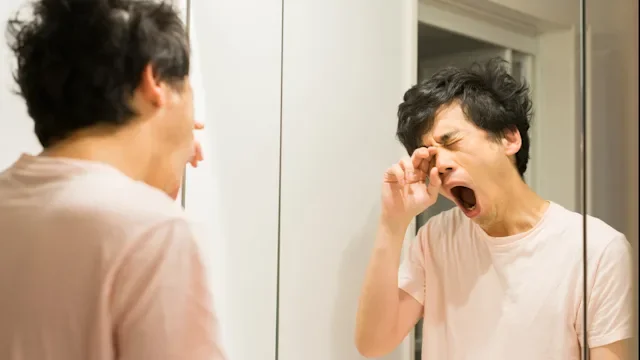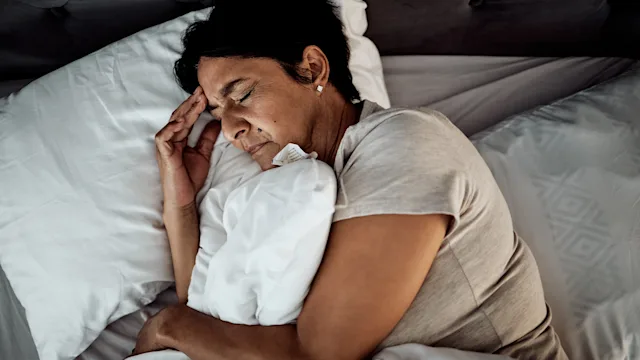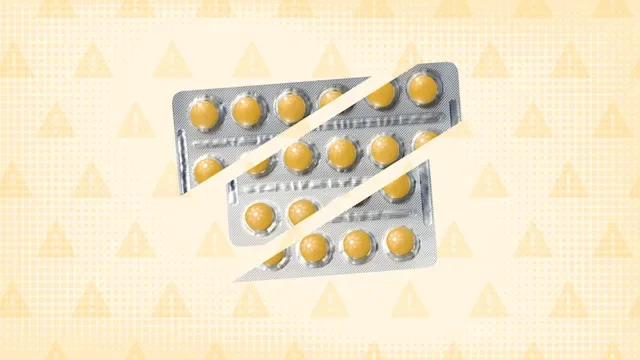Key takeaways:
Dill Werner remembers having sleep problems as far back as the third grade.
An insomnia diagnosis in college validated Dill’s feelings that “it wasn’t in my mind.”
If you feel you aren’t being heard, Dill says it’s vital to advocate for yourself to get the answers you need.
Dill Werner remembers the struggle of falling asleep from as early as the third grade.
The sensation was of complete exhaustion — body and mind. Dill compares it to when children cry because they don’t want to take a nap, even when they are obviously tired.
“I can't get into that point where you feel yourself drifting off, my brain will be so awake,” Dill says. “And my body will be like, ‘No, we need to just stop. Please stop.’”
Search and compare options
Dill, who identifies as transgender and nonbinary (their gender is not strictly male or female), remembers their mother constantly telling them that they just needed to get on a better sleep schedule.
“But it wasn’t that easy,” Dills says, “especially since children don’t understand words like insomnia.”
A lifetime of trying to fall asleep
Insomnia is a common sleep disorder that can make it hard to fall asleep, stay asleep, or both. It can be a lifelong problem. Although Dill, now 35 and living in Columbia, South Carolina, was not officially diagnosed with insomnia until college, they say that the issue went back years. Dill also was diagnosed as an adult with attention deficit hyperactivity disorder (ADHD), and they say that made sense, since it’s common for people to have both.
“I didn’t realize you’re not supposed to have this constant running monologue in your head that will just not shut up. And that’s been a big reason behind me not being able to fall asleep.”


The cycle of pain and insomnia
Dill has other medical conditions that stack up and make restful sleep hard to come by: Dill suffers from parasomnias, which are sleep disturbances that can include intense emotional episodes that cause Dill to wake up.
Dill also gets treatment for fibromyalgia, a disorder that can mean they feel chronic pain for days at a time. On painful days, they don’t get enough sleep. And, on days when they don’t get enough sleep, their pain increases, turning it into a vicious cycle.
Dill sought answers in college, when morning classes before 11 a.m. became a problem, even if Dill really enjoyed them. Eventually, Dill went to the health center and learned it was not just a poor sleep cycle — it was insomnia. Dill recalls feeling the huge amount of relief to have a medical professional finally give them some answers.
“I felt so validated because it wasn’t in my mind,” Dill says. “That’s what I was so worried about. ‘I’m being paranoid. It’s just stress.’ And I realized that, no, my brain is just wired differently.”
Getting on the right medication finally helped Dill sleep.
Dill discovered that finding the right healthcare provider was incredibly rewarding. For years, Dill received well-meaning, but unhelpful, advice, such as, “Try to get on a better sleep schedule, avoid naps,” or even, “stop drinking caffeine.”
Suggestions like these were irritating, especially because Dill had never drunk caffeine in the first place. When those answers failed, the blame shifted to anxiety and stress. Dill also acknowledges that as a child of divorce, this early trauma may have contributed to their insomnia.
Although Dill is finally receiving treatment today, the battle is far from over. What’s most frustrating for Dill is the constant need to change medication. While one type can work for a while, Dill finds their body gets used to the medication, then it’s no longer as effective.
Dill finds themselves needing to continuously check in with their body, asking questions like, have they had enough sleep, and, if not, what do they need to change? Some healthy lifestyle changes have made a difference. Dill makes sure to stop eating certain foods later in the day. And Dill finds comfort in winding down with TV shows like the offbeat animated sitcom Bob’s Burgers.
Finding answers by advocating for yourself
For people still struggling to find answers, Dill wants them to remember not to give up, even if they’re frustrated. “If your doctor is not listening to you and isn’t being very receptive to your concerns, feel free to find another doctor,” they stress.
Dill has had doctors who weren’t the right fit. They felt that some providers didn’t seem to understand Dill’s needs. But when Dill switched providers, the experience felt completely different. Dill has learned to speak up, even if it’s for basic accommodations.
“Advocating for yourself is key. Asking for a specialist is important,” Dill says. “And definitely let people [healthcare professionals] know that even if you don’t want to take medications, there are ways you can change to help live your life in a way that's healthier.”

Why trust our experts?

















